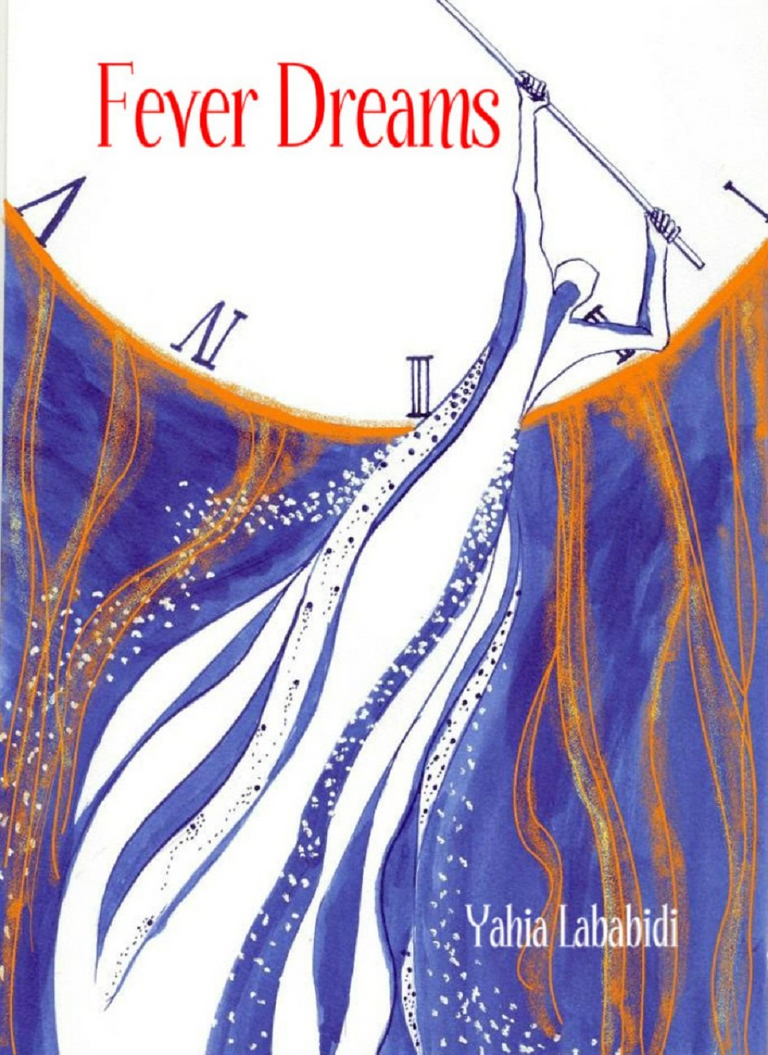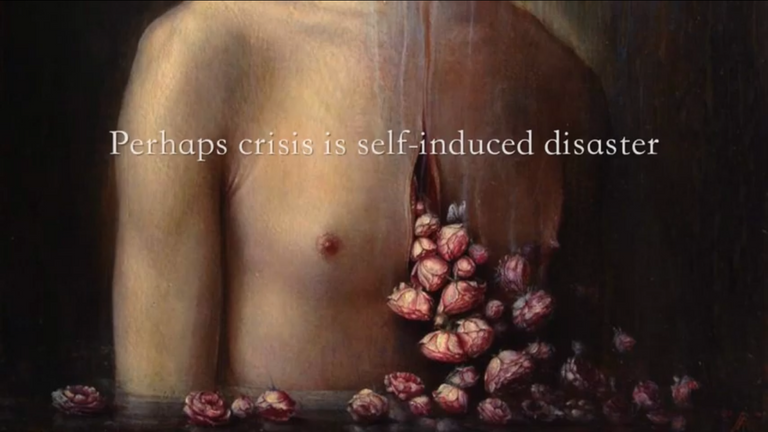

John F. Kennedy once famously pronounced, “When written in Chinese, the word ‘crisis’ is composed of two characters – one represents ‘danger’ and one represents ‘opportunity’.” However, it might be more accurate to translate ‘opportunity’ in this context as ‘crucial point’. So rephrasing the crux of Kennedy’s message we can say that, in Chinese, ‘crisis’ is represented as danger at a crucial point, which if seized upon might develop into an opportunity.
In other words, where danger exists, so too does opportunity (or its possibility, at least). This is ancient Chinese wisdom, as evident in the Dao De Jing, a work rich in fruitful contradictions. Its author, philosopher Laozi (6th century BC), reconciles these apparent tensions in this paradoxical truth: “Prosperity rests on disaster, disaster is hidden in prosperity. Who knows the line that separates them?”
The situation JFK addressed, with its Cold War dangers, such as Soviet military expansion, as well as US space exploration opportunities, might have changed, but that is precisely the point: any position of strength or good fortune is always under some sort of real or imagined threat, and cannot endure forever.
Still, no matter how we delude ourselves or are deluded into believing otherwise, “the only constant is change... all is flux” to borrow the immortal words of ancient Greek philosopher Heraclitus. This means that our positions of privilege, as individuals and as nations, are bound to shuffle from time to time. Nothing personal – that’s just the natural order of things. To think otherwise is to build sky-high upon a fault line, and then to be astonished when the earth shakes beneath our feet. Which is precisely what we humans do …
Continuing To Live
As a race, we’re generally short-sighted and death-denying, and also uncomfortable with that other inescapable aspect of life: loss. Along with change, loss also tends to precipitate crisis, whether it’s loss of our possessions, a job, a loved one, or even the inevitable subsiding of what we believe is our birthright – youth, health, beauty. Yet, as Philip Larkin bitterly sums it up in ‘Continuing to Live’, to live is a losing game:
This loss of interest, hair, and enterprise –
Ah, if the game were poker, yes,
You might discard them, draw a full house!
But it’s chess.
Just as we must gracefully surrender the gifts of youth in old age (if we’re lucky enough to live that long), so must we be ready to relinquish all the other pieces along the way. There are no guarantees that any lucky streak will last: hearts will be broken, empires collapse, and all circumstances alter eventually. If we manage to avoid a collective crisis, we shall be confronted with personal ones.
This fact is not within our control. What little say we have in the matter is how we choose to respond to the slings and arrows of outrageous fortune. We might cower in fear, grow bitter, or rage and bemoan our plight until we exhaust ourselves, but to quote another great poet, Omar Khayyam, “The Moving Finger writes; and, having writ, Moves on: nor all your Piety nor Wit Shall lure it back to cancel half a Line, Nor all your Tears wash out a Word of it.”
That is to say, some form of acceptance is required as the only sane response to unalterable Fate: “When two great forces oppose each other the victory will go to the one that knows how to yield,” says Laozi. Even if our initial response to calamity is not serene and courageous acceptance, and we cringe, curse, and rebel, we must still yield at some point if we are to survive, for if it is life itself that we do battle with, it is foolhardy to think we could possibly win.
Appreciating Tragedy
Some cultures are at various moments better at their appreciation of these hard truths than others. Cultures present or past that live with suffering or deprivation on a continuous basis, if not actually then at least by cultivating an appreciation through spiritual or philosophical practices, tend to fare better at accepting bad circumstances. Literary critic, classical scholar and cultural diagnostician Daniel Mendelsohn finds that what seems to be missing in contemporary American culture is just that: an appreciation of tragedy.
In a discussion of his memoir, The Lost, the story of his five-year worldwide search to discover the fates of Holocaust victim relatives, he suggests that “spending your life reading Greek tragedy is good preparation for confronting the Holocaust.” Elsewhere, in his introduction to his fine collection of essays How Beautiful It Is And How Easily It Can Be Broken, we find him carefully examining literature, arts and contemporary culture through an ancient Greek prism:
“The necessity, in the end, of yielding to hard and inexplicable realities that are beyond our control is a tragic truth…That so much of contemporary culture is characterized by [a] kind of sentimentality, by a seeming preference for false ‘closures’ over a strong and meaningful confrontation with real and unalterable pain, is a cultural crisis.”
Indeed, only a naïve and sentimental outlook would be shocked by loss or change. But precisely one thing a study of history or philosophy can do, is tutor us in the tragic dimension of human existence, if we have not experienced it first-hand.
No Yoke So Tight
As far as classical philosophy is concerned, ancient Greek and Roman Stoicism provides an excellent prescription for the chronically optimistic or idealistic, with their belief that everything can be fixed and their insistence on happy endings. Stoicism emphasized rational self-mastery of emotional responses, especially in terms of accepting with serenity whatever life has in store for us.
One could not be at the mercy of negative or destructive emotions and also be of sound judgment. One can see how such equanimity might be useful in confronting a crisis, but the Stoics went one step further. Their world-view anticipated and braced against disaster, through practices such as contemplation of death and meditations on the dangers of existence and the misfortunes one might encounter at any time.
The Stoic trick was maintaining a will (prohairesis) in harmony with the natural world – a sober self-control that yielded to fate. The great philosopher of Late Stoicism, Seneca (4 BC-65 AD), illustrated this world-view with a powerful metaphor: “An animal, struggling against the noose, tightens it… there is no yoke so tight that it will not hurt the animal less if it pulls with it than if it fights against it. The best alleviation for overwhelming evils is to endure and bow to necessity.”
Like the ancient Greeks, the spirited mostly 20th Century philosophy of Existentialism was also primarily concerned with how to live. Situated at the crossroads of religion, art, and psychology, Existentialism seems conceived by and for seekers who are having something of a spiritual crisis. Like the Stoics, Existentialists concerned themselves with will and freedom (as well as choice and authenticity) in their quest to lead a noble life.
Perhaps less predisposed to determinism than Stoicism, Existentialism was a philosophy in a state of emergency, no longer content to unquestioningly accept previous givens, such as God, goodness or purpose. Rather, its world-view presents us, in Heidegger’s phrase, as ‘thrown-into-being’, and quite possibly alone in an absurd world. To Existentialists it was entirely up to us to negotiate how to get up, begin walking, and give meaning to our existence.
The Thing of Value
What does all this have to do with the global health crisis and possible financial collapse? I think the ancients, Laozi and the Stoics, as well as more contemporary philosophers, have a great deal to say that is relevant. Certainly, a degree of Stoic calm or temperance in the face of the crisis would not go amiss, just as a baseline acceptance of life’s fickle nature, and perhaps a modicum of detachment and brave endurance, can also go a long way at this time. These philosophies recommend: self-examination, self-discipline, and ultimately, self-reliance.
People might also choose to follow the advice of another ancient philosopher, Diogenes, and “restamp the currency” – that is, to come up with an alternative set of values which stand a chance of weathering the storms of life. This advice is echoed in the words of proto-Existentialist philosopher Friedrich Nietzsche, who upon surveying the debris of old values littering the cultural landscape of Europe over a century ago, decided that nothing less than a “revaluation of all values” was needed. Yet practical advice for those seeking a way out of the panic of the present crisis, such as ‘courage in the midst of confusion’, should also resonate with all the other wrecks we barely survive: financial, existential, spiritual, romantic, familial, etc.
Wisdom teaches us ‘that which survives the shipwreck is the thing of value’. So when surveying the scene after a crisis to assess the damage, be it a natural disaster or a private calamity, we might begin by taking stock of what remains intact before proceeding to reassemble our lives. Only then can our sense of disorientation and despair be replaced by reorientation and renewed purpose.
To return to the ancients once more, the Greek word ‘crisis’ means a ‘judgment’ or a ‘trial.’ In testing our mettle, such trials rearrange our priorities. We are sternly reminded how little we actually need, and how much more we can do without. In other words, a crisis can shock us out of the complacency of false comforts, habits and routine, and teach us instead difficult lessons about life. More pointedly, such trials reveal us to ourselves in a new light, without the least regard for our tenderly-incubated self-images.
Thus times of crisis often offer us the opportunity we didn’t ask for to do what we’d rather not: examine our lives more carefully. By forcing us to refine our attention as well as deepen our appreciation, we are granted the golden opportunity to rewrite our souls:
If you want to become full,
Let yourself be empty.
If you want to be reborn,
Let yourself die.
If you want to be given everything
give everything up.
– Dao De Jing
© Yahia Lababidi


Shared on Twitter #posh @ocdb